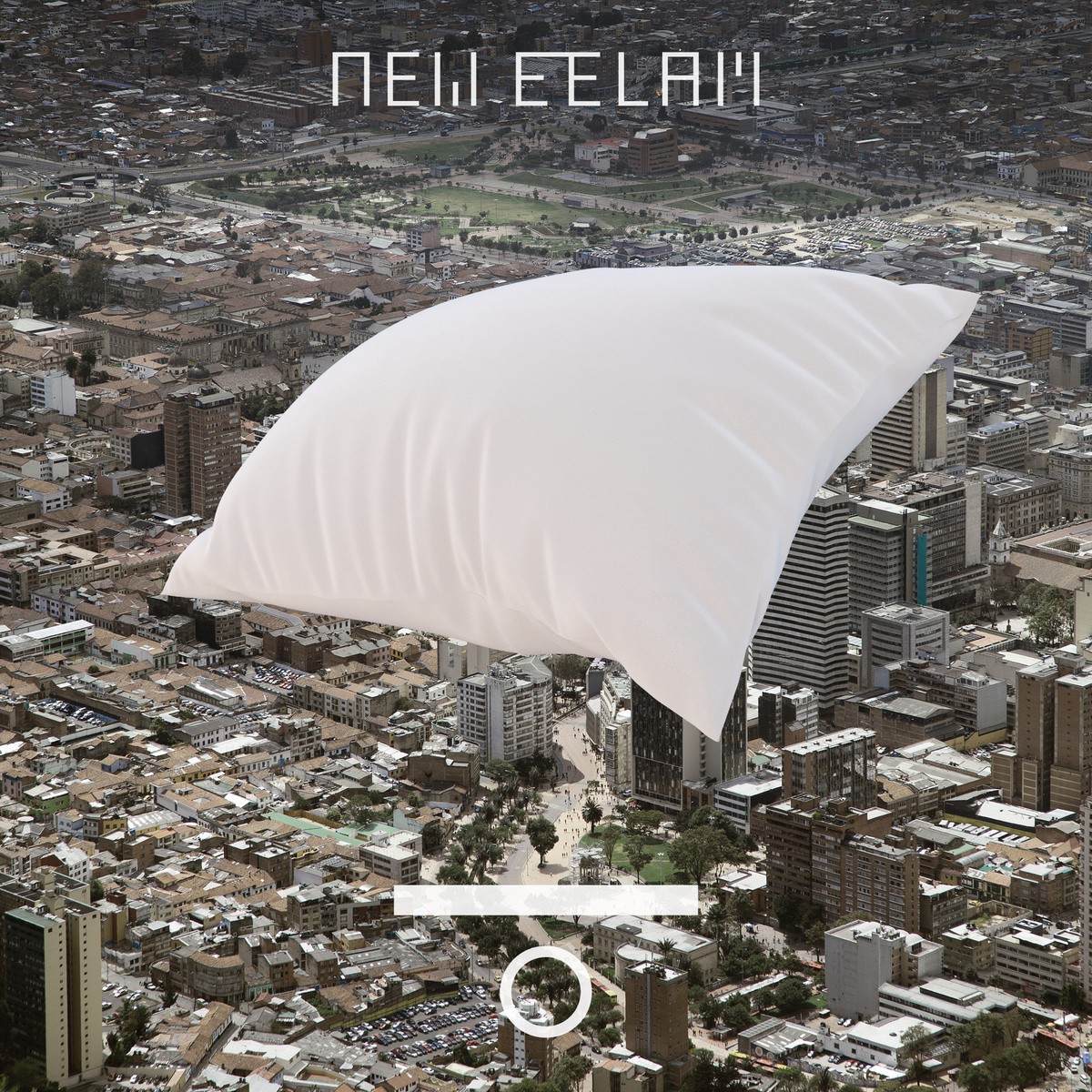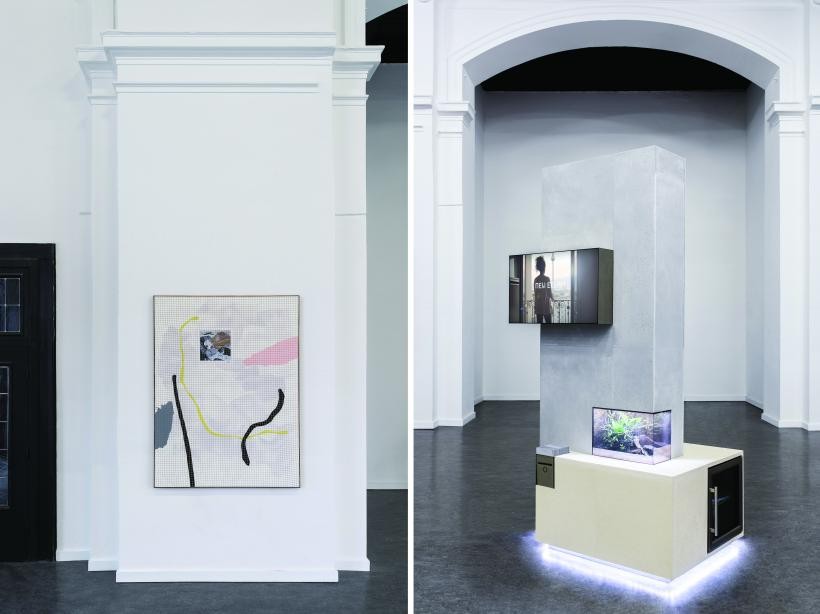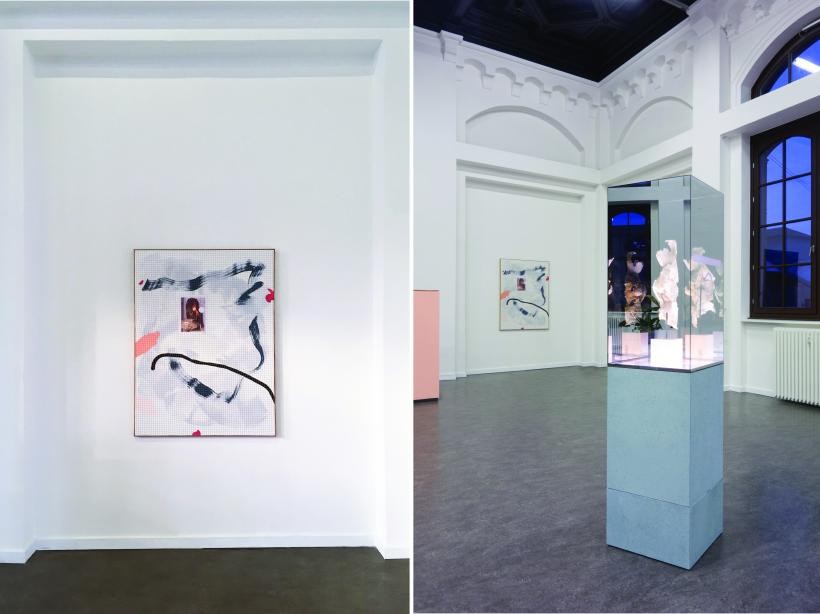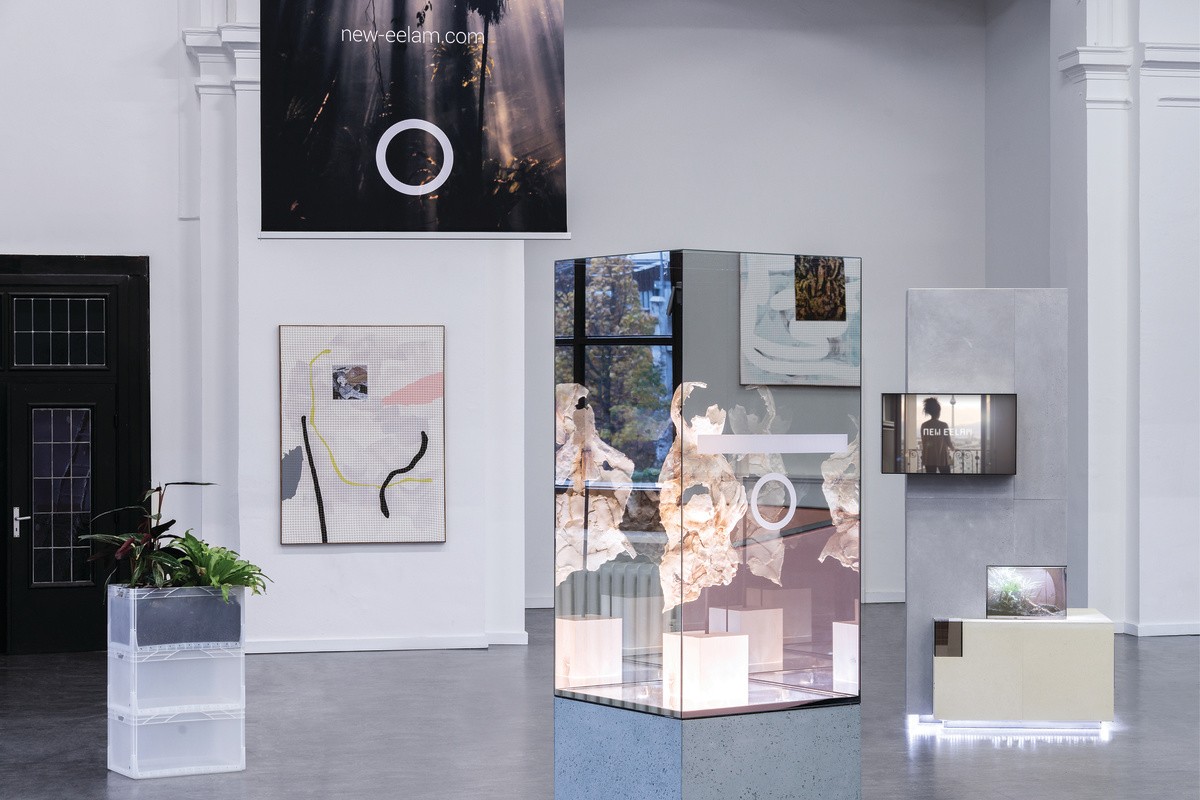Christopher Kulendran Thomas
60 Million Americans Can’t Be Wrong
04 Nov 2016 - 12 Feb 2017
CHRISTOPHER KULENDRAN THOMAS
60 Million Americans Can’t Be Wrong
4 November 2016 — 12 February 2017
Curated by Annika Kuhlmann
Artistic Directors: Lisa Britzger and Jennifer Smailes
Christopher Kulendran Thomas’ family is from a place that no longer exists. For three decades during the Sri Lankan civil war, Eelam was self-governed as an autonomous state led by a neo-Marxist revolution. But this uprising was crushed in 2009 by an authoritarian government protected by the cloak of national sovereignty. In the immediate aftermath of that violence, and the consequent economic liberalisation that followed, a new local market for contemporary art emerged. Developed in collaboration with curator Annika Kuhlmann, Thomas’ exhibition features original sculptures, paintings and works on paper by some of Sri Lanka’s foremost young contemporary artists, purchased recently in that ‘peacetime’ economic boom and then reconfigured by Thomas for international circulation within his own compositions. Thomas' work manipulates some of the structural operations of art, the means by which its circulation and distribution produces reality. This ongoing operation translates what counts as contemporary across the global contours of power by which the ‘contemporary’ itself is conditioned and draws on the outward performance of democracy by which nations evade international accountability.
Late at night on November 8st 2016, Canada’s Citizenship and Immigration website crashed as millions of Americans reacted in despair to the results of the US Presidential Election – with nearly half of the American electorate casting their ballots in a way that has prompted others to consider leaving the country. Is this a symptom of a post-truth democracy that is becoming increasingly divided? A place where political deliberation has been replaced by reactionary debates that inflame polarized prejudice? Does the 2016 US Presidential Election constitute a revolution by the demographically disenfranchised? Or might this all indicate a more profound crisis in liberal democracy itself?
The idea that democracy may be an insufficient form of government has existed at least since Plato attributed the execution of Socrates to the ignorance of the mob. This type of political system can engender prejudice even when it does function; and when it doesn't, democracy can offer the perfect smokescreen for the rule of clever elites. In his 1970 treatise "Exit, Voice, and Loyalty", German-born economist Albert O. Hirschman posits that exit – leaving – is the ultimate political choice possible in a liberal democracy. Citizens, he suggests, demonstrate loyalty when the system serves them well. They exercise their democratic voice when they believe the system is open to change. And if they realize that the only way to change the system is from the outside, by finding something altogether better, they leave. This is exactly what Thomas’ family did, leaving behind the occupation of their homeland and abandoning a corrupt pretence at democracy in order to look for a better life. Centuries earlier, it was also this type of exit that was, in Hirschman’s view, the founding imperative of the United States itself; and it has remained a crucial way of ensuring political accountability ever since. But in 2016, to where would a dissatisfied American electorate go? Canada? Really?
Influenced by Hirschman’s writings, the Silicon Valley blockchain entrepreneur Balaji S. Srinivasan has suggested that America could be seen as the “Microsoft of nations”: its code base (or constitution) is written in an obfuscated language, it systematically propagates fear around security issues and it behaves ruthlessly towards key suppliers whilst favouring its rich corporate clients – and the world has no choice but to buy it anyway. But Srinivasan proposes that today’s exit might take a different form: by providing opt-in alternatives to incumbent systems, technological innovation can reduce barriers to exit, amplifying democratic voice reinforced by the ease of leaving. Threatened by increasingly mobile constituents who can transfer their loyalties to the cloud, democracy will be forced either to recover or to face collapse.
Given diminishing public confidence in existing political institutions across many parts of the world, how might a more liquid form of citizenship be imagined in an age of technologically accelerated dislocation? For his exhibition at Kunstverein Harburger Bahnhof, Christopher Kulendran Thomas presents "New Eelam", a startup founded by the artist to develop a global housing subscription based on collective ownership. Together with his founding partners, Thomas proposes a long-term strategy for how a new economic model could evolve, without friction, out of the present system – through the luxury of communalism rather than private property. Functioning initially through contemporary art’s transnational networks and through art’s role in prototyping new lifestyle formats and new forms of immaterial labour, his post-capitalist venture imagines the future of citizenship beyond national borders. Presented within an installation that draws on interior design, New Eelam’s extended promotional film takes the form of a speculative history documentary that asks how a state could be constituted in corporate form and how a brand might communicate as an artist.
Christopher Kulendran Thomas’ work has been included in the 11th Gwangju Biennale (2016), the 9th Berlin Biennale (2016), "Bread and Roses", Museum of Modern Art in Warsaw (2016), "Co-Workers: Network As Artist", Musée d'Art Moderne de la Ville de Paris (2015) and "Art Turning Left: How Values Changed Making", Tate Liverpool (2013). Forthcoming exhibitions include shows at Hamburger Bahnhof – Museum für Gegenwart (Berlin) and Tensta Konsthall (Stockholm).
60 Million Americans Can’t Be Wrong
4 November 2016 — 12 February 2017
Curated by Annika Kuhlmann
Artistic Directors: Lisa Britzger and Jennifer Smailes
Christopher Kulendran Thomas’ family is from a place that no longer exists. For three decades during the Sri Lankan civil war, Eelam was self-governed as an autonomous state led by a neo-Marxist revolution. But this uprising was crushed in 2009 by an authoritarian government protected by the cloak of national sovereignty. In the immediate aftermath of that violence, and the consequent economic liberalisation that followed, a new local market for contemporary art emerged. Developed in collaboration with curator Annika Kuhlmann, Thomas’ exhibition features original sculptures, paintings and works on paper by some of Sri Lanka’s foremost young contemporary artists, purchased recently in that ‘peacetime’ economic boom and then reconfigured by Thomas for international circulation within his own compositions. Thomas' work manipulates some of the structural operations of art, the means by which its circulation and distribution produces reality. This ongoing operation translates what counts as contemporary across the global contours of power by which the ‘contemporary’ itself is conditioned and draws on the outward performance of democracy by which nations evade international accountability.
Late at night on November 8st 2016, Canada’s Citizenship and Immigration website crashed as millions of Americans reacted in despair to the results of the US Presidential Election – with nearly half of the American electorate casting their ballots in a way that has prompted others to consider leaving the country. Is this a symptom of a post-truth democracy that is becoming increasingly divided? A place where political deliberation has been replaced by reactionary debates that inflame polarized prejudice? Does the 2016 US Presidential Election constitute a revolution by the demographically disenfranchised? Or might this all indicate a more profound crisis in liberal democracy itself?
The idea that democracy may be an insufficient form of government has existed at least since Plato attributed the execution of Socrates to the ignorance of the mob. This type of political system can engender prejudice even when it does function; and when it doesn't, democracy can offer the perfect smokescreen for the rule of clever elites. In his 1970 treatise "Exit, Voice, and Loyalty", German-born economist Albert O. Hirschman posits that exit – leaving – is the ultimate political choice possible in a liberal democracy. Citizens, he suggests, demonstrate loyalty when the system serves them well. They exercise their democratic voice when they believe the system is open to change. And if they realize that the only way to change the system is from the outside, by finding something altogether better, they leave. This is exactly what Thomas’ family did, leaving behind the occupation of their homeland and abandoning a corrupt pretence at democracy in order to look for a better life. Centuries earlier, it was also this type of exit that was, in Hirschman’s view, the founding imperative of the United States itself; and it has remained a crucial way of ensuring political accountability ever since. But in 2016, to where would a dissatisfied American electorate go? Canada? Really?
Influenced by Hirschman’s writings, the Silicon Valley blockchain entrepreneur Balaji S. Srinivasan has suggested that America could be seen as the “Microsoft of nations”: its code base (or constitution) is written in an obfuscated language, it systematically propagates fear around security issues and it behaves ruthlessly towards key suppliers whilst favouring its rich corporate clients – and the world has no choice but to buy it anyway. But Srinivasan proposes that today’s exit might take a different form: by providing opt-in alternatives to incumbent systems, technological innovation can reduce barriers to exit, amplifying democratic voice reinforced by the ease of leaving. Threatened by increasingly mobile constituents who can transfer their loyalties to the cloud, democracy will be forced either to recover or to face collapse.
Given diminishing public confidence in existing political institutions across many parts of the world, how might a more liquid form of citizenship be imagined in an age of technologically accelerated dislocation? For his exhibition at Kunstverein Harburger Bahnhof, Christopher Kulendran Thomas presents "New Eelam", a startup founded by the artist to develop a global housing subscription based on collective ownership. Together with his founding partners, Thomas proposes a long-term strategy for how a new economic model could evolve, without friction, out of the present system – through the luxury of communalism rather than private property. Functioning initially through contemporary art’s transnational networks and through art’s role in prototyping new lifestyle formats and new forms of immaterial labour, his post-capitalist venture imagines the future of citizenship beyond national borders. Presented within an installation that draws on interior design, New Eelam’s extended promotional film takes the form of a speculative history documentary that asks how a state could be constituted in corporate form and how a brand might communicate as an artist.
Christopher Kulendran Thomas’ work has been included in the 11th Gwangju Biennale (2016), the 9th Berlin Biennale (2016), "Bread and Roses", Museum of Modern Art in Warsaw (2016), "Co-Workers: Network As Artist", Musée d'Art Moderne de la Ville de Paris (2015) and "Art Turning Left: How Values Changed Making", Tate Liverpool (2013). Forthcoming exhibitions include shows at Hamburger Bahnhof – Museum für Gegenwart (Berlin) and Tensta Konsthall (Stockholm).







